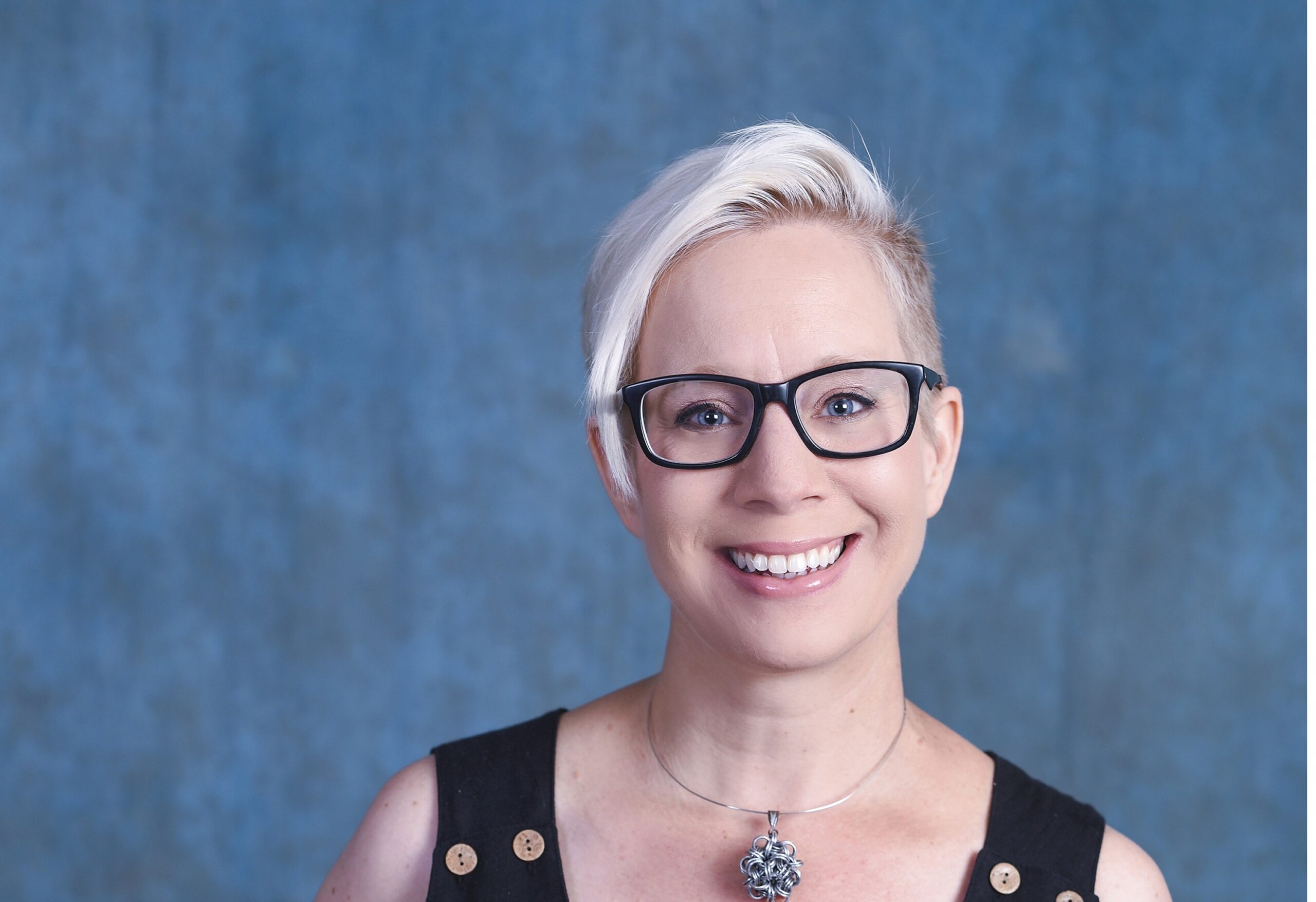By Wendy Bostwick
I am, yet again, flooded with anxiety as I prepare for my talk. How long have I been doing this? How often have I talked about bisexual women’s health, cataloging the list of poor outcomes and traumas? The ways in which the denial of our very existence does profound damage? And why does it seem to get harder every time I do it? I take many deep breaths, but my voice still shakes as I start the presentation. I am nervous, yes. But also, angry, sad, and tired. Profoundly tired.
When I started researching and discussing bisexual women’s health over twenty years ago, I felt like a voice in an apparent wilderness. Where were the bisexual people in the burgeoning field of “LGBT” health research? Where were the women? I kept searching the literature, like a good little graduate student, and found that we only counted when it came to sexual behavior and sexual risk—on our backs, we were the bridge. But were we nothing more than vectors? What about all the other complexities of health? Mental health, physical health, and the whole spectrum of health behaviors? What about the ways in which our social environments, including those that deny, dismiss, ridicule, and disregard bisexual people affect our health? What about, indeed. I quickly learned that this erasure and disregard permeated scientific and health research as well, with very few exceptions.
Committed as I was (am) to making bisexual women visible in health research, and the world, I never stopped to consider how being a part of the population I was studying would come at a cost…my assumption was always that “insider” status as a bisexual woman would make things easier. Or, at least, would bring with it a tacit knowledge that would make me a better researcher. Yet as time has passed, doing this work has become more difficult, not less, and the inextricability of me and the work feels ever more cemented.
I talk often about the high rates of depression, anxiety, trauma, suicidality, sexual abuse, and assault, all of which occur at the highest rates among bisexual women. These issues are not abstract or hypothetical to me. I am what I study. And while I personally am privileged to have the support I need (shout out to all my therapists! And Xanax!), I cannot repeat this laundry list of numbers and devastating statistics without taking up and taking in the sheer terribleness of what I’m aggregating and re-telling. Behind all those numbers are people. Innumerable harms and sorrows, which with every recitation wear away at whatever protective coating I may have once had. Which wend themselves in, around and through my nervous system. The truth hurts. And the pain is real.
Yet I cannot avoid discussing this litany of very real health disparities because part of the work is making these findings known—to future and current nurses, doctors, psychologists, sex therapists, etc., etc., etc. The stark and often grim information I relay is a pleading of sorts: “Please know this, please believe this, please take this AND US seriously.” I should not have to beg you to acknowledge that we matter. That I matter. Yet often, after 20 years, it feels as if this is what I am (still) doing. This truth hurts as well. This is the pain of being and breathing.
And so, here I stand, invited to speak, apparently—once more—the token bisexual speaker, addressing a group supposedly committed to LGBT health (but I guess, hey, better than no invite or speaker at all. So, progress…??). My voices shakes. And I am sad for all the truths I must speak, angry that I must speak them again and again and again, as if always for the first time. And I am beyond tired….
I guess now is the point in the story where I’m supposed to share my stunning moment of clarity, where I share that I’ve come out the other side, hopeful and somehow at peace. But really, I’m not a silver lining/glass half-full type of person. Or even a glass half-empty type. More like a there’s-a-glass-shattered-on-the-ground type. Is there hope for me? Is there a way to separate myself from the pain of what I know, of who I am, and what my research entails? Who knows.
Here is what I can say, though, especially to those who may find this exposition a bit… self-absorbed. I am hopeful for the field of bisexual health research. I am stunned and amazed by the many, many young and emerging health researchers, advocates, activists, and allies who continue to do necessary and sophisticated work. Making visible the complexity and richness of the bisexual community and how we understand health, bringing attention to those in bi+ communities we have often done a poor job representing or have silenced altogether: men, people of color, people with disabilities, trans and non-binary people, singularly and at the intersections. As this next generation highlights the resilience, affirmative experiences, and unique joy to be found in bisexual people and bisexual spaces, I feel buoyed and encouraged. And you should as well.
Now if you’ll excuse me, I really do need a nap.
Wendy Bostwick is a researcher living outside of Chicago. In her spare time, she enjoys dogs, crossword puzzles, and good beer.

